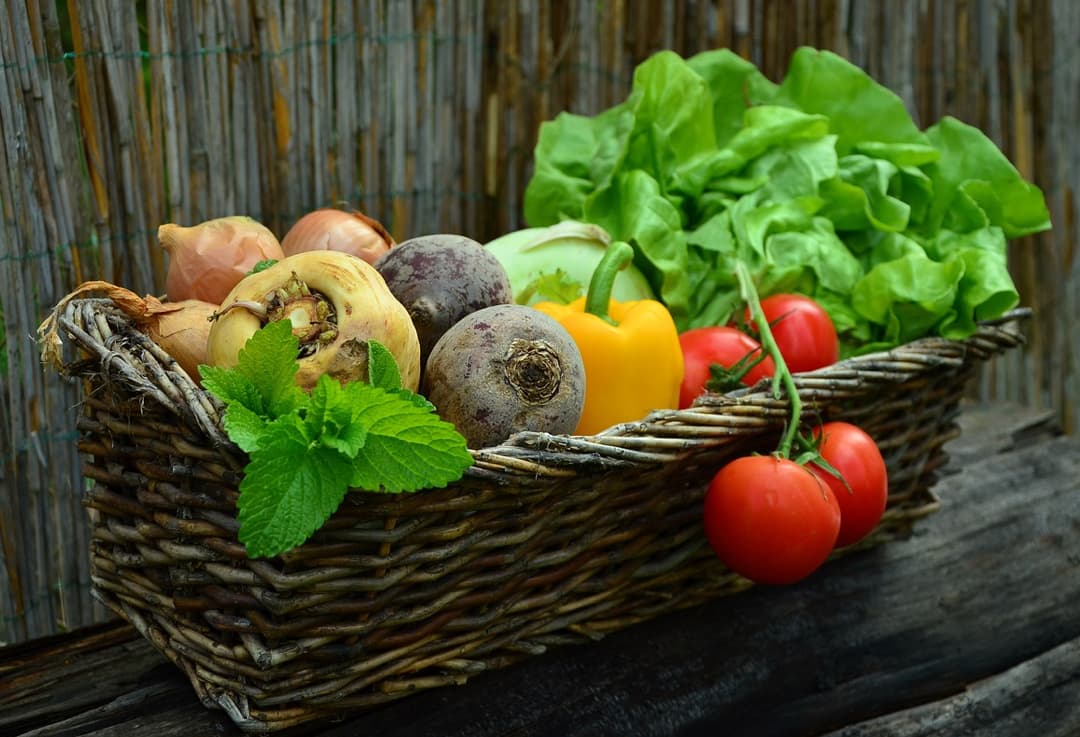In today’s globally connected environment, it’s crucial to guarantee the integrity and safety of food items. The intricate nature of the international food supply network introduces substantial obstacles in achieving clarity, traceability, and responsibility. Blockchain technology stands out as a formidable tool in this scenario, providing a distributed, unalterable record system that transforms the way food is sourced, monitored, and delivered. Utilizing blockchain within the food supply chain allows participants to bolster food safety by enhancing traceability, sustainability, and openness.
What is the Food Supply Chain?
The path that food takes from the farm to the consumer’s table is complex and involves multiple interconnected phases, each presenting unique challenges and hazards. Spanning from production and processing to distribution and final consumption, the food supply chain involves a wide range of participants, including but not limited to farmers, processors, distributors, retailers, regulatory bodies, and end consumers. Effective collaboration among these parties is crucial for maintaining food safety standards and ensuring that consumers around the globe receive healthy, high-quality food products.
What about the impact of Blockchain in Food Supply Chain?
Blockchain technology introduces a decentralized, transparent framework for the instantaneous recording and verification of transactions. Fundamentally, blockchain acts as a distributed ledger that records data across numerous computers, rendering it nearly impervious to manipulation or unauthorized changes. Within the food supply chain context, blockchain provides all involved entities with access to a consistent, unchangeable log of a food product’s trajectory from its source to the final buyer.
Global Market Outlook for Blockchain in Food Supply Chain Management
The integration of blockchain technology within the food supply chain is accelerating, propelled by an increasing demand for greater food safety, traceability, and openness. Predictions indicate a significant surge in the blockchain food supply chain sector, expecting its valuation to soar into the billions by the year 2025. This growth is attributed to heightened consumer awareness, strict regulatory mandates, and the pressing need for more efficient supply chain operations, all of which are driving the swift embrace of blockchain across the food industry.
What are Benefits of Blockchain for Food Supply Chain Enhancement?
Blockchain brings numerous benefits to the table for improving both food safety and the management of supply chains:
- Comprehensive Traceability: Blockchain technology enables the detailed tracking of food items from their origin to the consumer, providing stakeholders the ability to monitor each product’s path and pinpoint any potential contamination or quality issues;
- Enhanced Transparency and Reliability: By offering an open and unalterable record of all transactions, blockchain boosts the reliability and trust among parties in the supply chain, minimizing chances of fraud and unethical practices;
- Operational Efficiency and Cost Savings: Blockchain simplifies the supply chain by cutting down on paperwork, administrative expenses, and delays. It removes the need for intermediaries and uses smart contracts for automating transactions, leading to improved efficiency and lower costs;
- Guaranteed Food Safety and Quality: With blockchain, real-time tracking of food items becomes possible, allowing for the immediate identification and remediation of safety issues. It ensures the integrity of data and aids in upholding quality standards and regulatory compliance.
Blockchain Application in Various Food Industry Sectors
Blockchain technology’s adoption is beneficial across different segments of the food industry:
- In the Meat Supply Chain: The meat industry, encompassing everything from livestock farming to processing and retail, stands to gain from blockchain by achieving higher levels of transparency, traceability, and quality control. Blockchain facilitates the monitoring of meat products from the farm to the consumer, ensuring the prevention of contamination and falsification;
- Within the Seafood Supply Chain: Challenges such as sustainability concerns, product authenticity, and traceability issues plague the seafood sector. Blockchain technology addresses these by allowing for the creation of a secure, transparent supply network. It records essential details like the place of catch, processing techniques, and distribution paths, thus improving traceability and verifying the authenticity of seafood products. This builds consumer confidence and supports responsible fishing practices;
- Dairy Industry Supply Chain: The dairy sector prioritizes the health and satisfaction of consumers by ensuring the quality and safety of milk products. Utilizing blockchain technology, the industry can monitor the complete trajectory of dairy products from production to retail, achieving remarkable transparency and precision. Blockchain records critical details like milking methods, storage environments, and transportation paths, improving traceability and mitigating the risks of contamination or degradation;
- Beverage Industry Supply Chain: The beverage sector, encompassing everything from non-alcoholic drinks to spirits, depends on robust supply chain management to serve global consumers. Blockchain provides a dependable and open platform for documenting and authenticating beverage transactions, safeguarding product genuineness and excellence. Tracking vital information such as production timelines, ingredient lists, and logistics networks, blockchain bolsters traceability and deters the circulation of fake or tampered products;
- Frozen Food Sector Supply Chain: Challenges of food safety, quality assurance, and logistics management are particularly acute in the frozen food industry. Blockchain technology presents an all-encompassing remedy by facilitating the monitoring of frozen products from manufacture to end-use. Documenting specifics like temperature management, preservation conditions, and delivery strategies, blockchain augments traceability and maintains product fidelity. Consequently, this diminishes the likelihood of foodborne diseases and recalls, boosting consumer trust and the reputation of brands.
Deploying Blockchain in the Food Supply Chain
Deploying blockchain within the food supply chain entails several critical actions:
- Stakeholder Identification: Pinpoint all entities in the supply chain, such as producers, processors, shippers, retailers, and consumers;
- Data Specification: Specify the data to be logged on the blockchain, including origins, handling protocols, and quality control measures;
- Creation of Smart Contracts: Craft smart contracts to streamline supply chain operations like payments, quality assessments, and regulatory adherence;
- Blockchain System Integration: Connect the systems of all stakeholders to the blockchain network for instantaneous data exchange and authentication;
- Ongoing Oversight and Upkeep: Regularly oversee the blockchain system to confirm the precision, security, and regulatory compliance of data.
The Foreseeable Future of Food Supply Chains: Tracefood
Tracefood epitomizes the next generation of food supply chains, with blockchain technology at its core, fostering a clear, efficient, and eco-friendly network. By offering instant insight into supply chain activities, Tracefood empowers stakeholders to make well-informed choices, minimize hazards, and bolster consumer confidence. Through enhanced traceability, openness, and collaboration, Tracefood aims to establish a safer, more robust food ecosystem advantageous to all parties.

Conclusion
Blockchain technology is poised to revolutionize the food supply chain by providing unparalleled traceability, openness, and reliability. Leveraging blockchain enables industry participants to improve food security, lower costs, and cultivate consumer trust. With the continued adoption and integration of blockchain, the future of food supply chains is optimistic, marked by enhanced operational efficiency, sustainability, and consumer assurance.
Frequently Asked Questions (FAQs)
Blockchain technology is a distributed ledger system that securely records transactions on multiple computers in a way that ensures the data is permanent, visible, and secure from tampering. It operates by grouping transactions into “blocks,” which are then linked sequentially to form a continuous chain, known as a blockchain.
Blockchain significantly improves food safety by enabling comprehensive traceability of food items. It allows stakeholders to monitor the entire journey of food products from their origin to the consumer. By documenting vital information such as production techniques, handling protocols, and storage environments, blockchain aids in swiftly identifying and mitigating potential food safety hazards.
Smart contracts are automated, self-executing contracts with the terms of the agreement embedded into code. In the context of the food supply chain, smart contracts facilitate the automation of processes like payments, quality inspections, and compliance checks, executing these tasks automatically when predefined blockchain-recorded conditions are met.
Blockchain guarantees the integrity and security of data through its inherent decentralized and immutable structure. Once recorded, transactions cannot be modified or erased, providing a tamper-proof record. Additionally, the encryption and decentralized distribution of data across various computers minimizes the risk of unauthorized data manipulation or breaches.
Blockchain presents numerous benefits across the food industry spectrum, enhancing traceability, transparency, operational efficiency, and regulatory compliance. It enables stakeholders in sectors such as meat, seafood, dairy, and beverages to streamline supply chain management, reduce overhead costs, and cultivate trust with consumers by ensuring product authenticity and safety.
